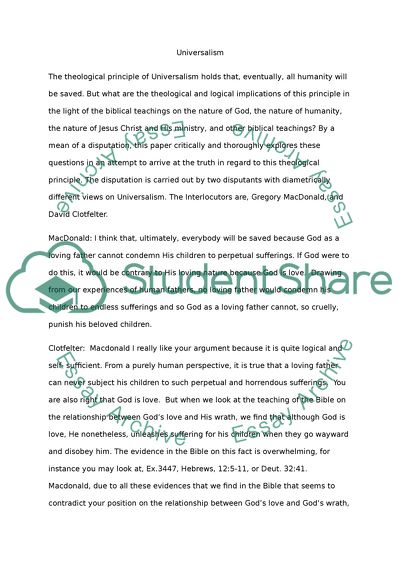Cite this document
(The Theological Principle of Universalism Assignment, n.d.)
The Theological Principle of Universalism Assignment. https://studentshare.org/religion-and-theology/1799233-theology-paper-on-universalism
The Theological Principle of Universalism Assignment. https://studentshare.org/religion-and-theology/1799233-theology-paper-on-universalism
(The Theological Principle of Universalism Assignment)
The Theological Principle of Universalism Assignment. https://studentshare.org/religion-and-theology/1799233-theology-paper-on-universalism.
The Theological Principle of Universalism Assignment. https://studentshare.org/religion-and-theology/1799233-theology-paper-on-universalism.
“The Theological Principle of Universalism Assignment”. https://studentshare.org/religion-and-theology/1799233-theology-paper-on-universalism.


